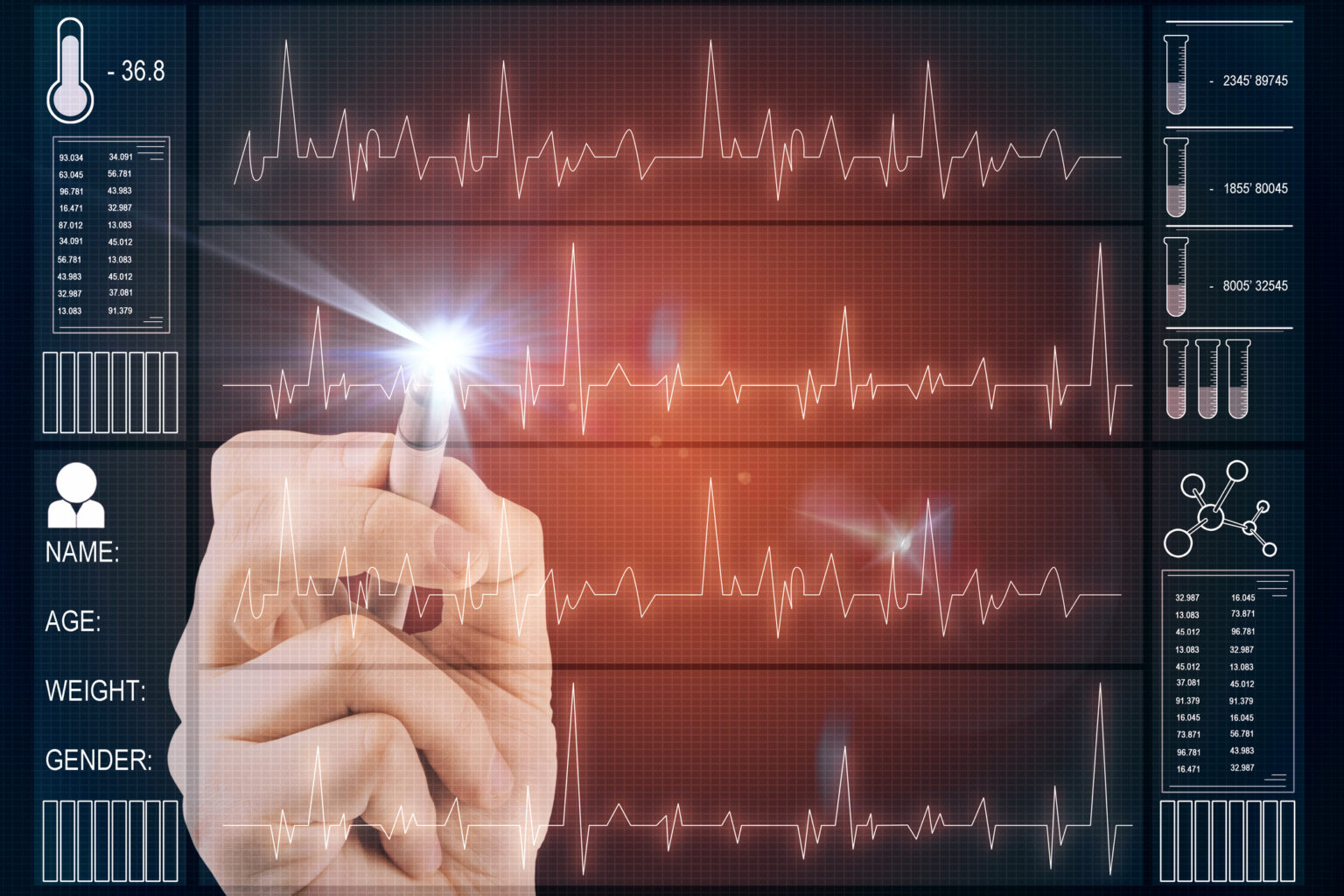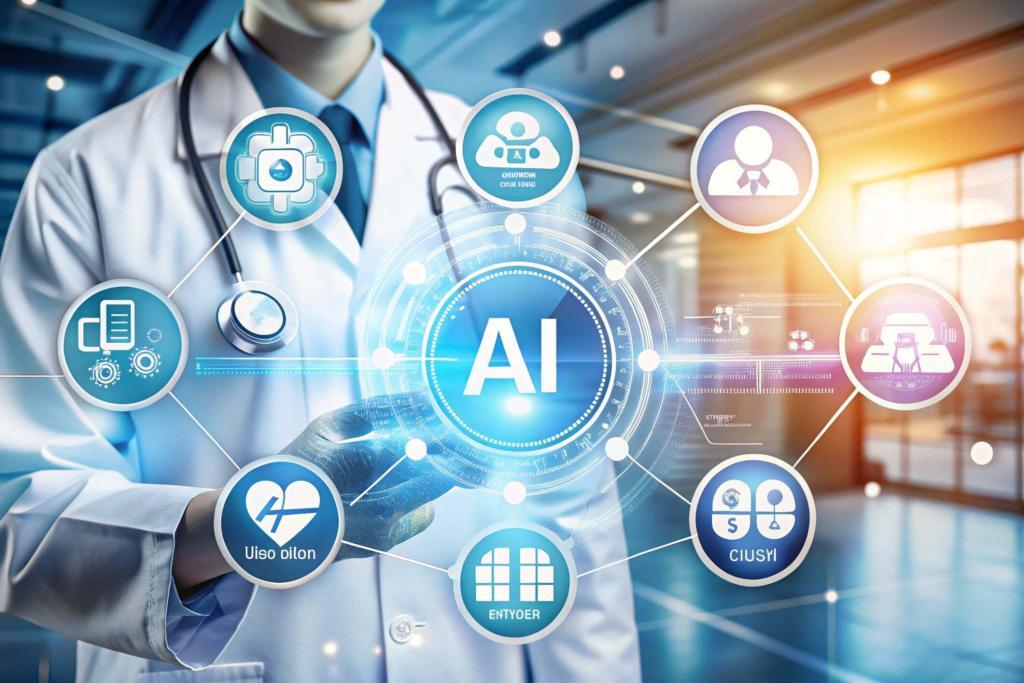Summary: Artificial Intelligence (AI) has significantly advanced the field of electrocardiography (ECG) by transforming diagnostic accuracy, predictive capabilities, and clinical efficiency. This article will examine several developments, including machine learning algorithms, deep neural networks, enhanced diagnostic precision, real-time monitoring, and predictive analytics. Challenges, ethical considerations, and future opportunities are also discussed, highlighting the transformative potential of AI-enhanced ECG in clinical cardiology.
Keywords: Artificial Intelligence, Electrocardiography, Machine Learning, Deep Neural Networks, Cardiology, Predictive Analytics.
Introduction to Electrocardiography
Electrocardiography (ECG) is a fundamental tool in cardiology, widely used for diagnosing and monitoring cardiovascular diseases. Recent advancements in artificial intelligence (AI) have revolutionised conventional ECG analysis, enhancing the diagnostic precision and predictive potential of this vital medical tool. This article explores the latest breakthroughs, highlighting how AI integration is enhancing clinical decision-making, patient outcomes, and healthcare efficiency.
Evolution of AI in ECG Interpretation
Traditionally, ECG interpretation has relied heavily on the expertise of cardiologists and specialised healthcare professionals. However, this manual approach can be subjective and prone to variability. With the aid of AI, specifically machine learning (ML) and deep learning (DL), ECG interpretation has become significantly more accurate and objective. AI algorithms have been trained on extensive ECG datasets, enabling systems to identify subtle abnormalities and complex patterns beyond human capabilities.
Machine Learning in ECG Analysis
ML models, particularly supervised learning algorithms, have become instrumental in ECG analysis. They utilise labelled ECG datasets to identify and classify arrhythmias, ischaemic events, and other cardiac abnormalities. Algorithms such as Support Vector Machines (SVM), Random Forests, and Gradient Boosting have demonstrated excellent performance in enhancing ECG diagnostic accuracy.
Deep Learning and Neural Networks
Deep learning, a subset of machine learning involving neural networks, has further revolutionised ECG interpretation. Convolutional Neural Networks (CNNs), renowned for their pattern recognition capabilities in image processing, have adapted exceptionally well to analysing ECG waveforms. Recent studies have demonstrated that CNNs achieve near-human or superior performance levels in detecting cardiac abnormalities, including atrial fibrillation and ventricular arrhythmias.
Enhanced Diagnostic Precision
AI-enhanced ECGs significantly improve diagnostic accuracy and reduce clinical uncertainty. AI can automatically detect subtle ECG changes indicative of acute coronary syndrome (ACS), myocardial infarction, or other cardiac disorders with remarkable precision, providing critical early warnings that might otherwise be missed.
Early Detection of Arrhythmias
AI-driven ECG systems now accurately identify arrhythmias early. Algorithms trained on massive ECG datasets can detect irregular heartbeats such as atrial fibrillation—a leading cause of stroke—long before they manifest clinically obvious symptoms. Early detection enables timely interventions, significantly improving patient outcomes.
Identification of Silent Heart Conditions
AI-enhanced ECG can detect silent cardiac conditions, including asymptomatic left ventricular dysfunction, hypertrophic cardiomyopathy, and silent myocardial infarctions. By recognising these silent conditions, AI assists clinicians in initiating preventive measures that could avert serious cardiovascular events.
Predictive Analytics and Prognostic Capabilities
The integration of AI into ECG technology offers significant predictive insights, transforming ECGs from purely diagnostic tools into predictive and preventive healthcare resources.
Risk Prediction for Cardiovascular Diseases
AI algorithms are capable of predicting long-term cardiovascular risks, such as the likelihood of heart failure, myocardial infarction, or sudden cardiac death. By analysing historical ECG data, demographic information, and clinical history, AI models can stratify patients according to risk levels, allowing healthcare providers to implement proactive preventive measures.
Prognostic Insights through Big Data
The utilisation of big data analytics in ECG interpretation allows for personalised prognostic modelling. By integrating ECG readings with comprehensive clinical data, AI systems can accurately forecast disease progression and suggest individualised therapeutic strategies, thus enhancing patient management and clinical outcomes.
Real-Time ECG Monitoring and Remote Healthcare
AI-driven real-time monitoring has significantly enhanced the capabilities of wearable ECG devices, revolutionising remote healthcare delivery and continuous patient monitoring.
Wearable ECG Technology
AI algorithms integrated into wearable devices enable continuous, real-time ECG monitoring outside clinical settings. These wearables can immediately detect abnormalities and notify healthcare providers or emergency services, significantly reducing response times during cardiac events.
Telecardiology and Remote Patient Management
Telecardiology, supported by AI-enhanced ECG technology, allows for efficient remote patient monitoring and management. Healthcare professionals can remotely monitor patients’ cardiac status, adjusting treatments proactively based on data-driven alerts, thereby enhancing patient safety and reducing hospitalisation rates.
Ethical Considerations and Challenges
While AI-enhanced ECG technology offers numerous benefits, its implementation raises significant ethical questions and challenges, including concerns over data privacy, algorithm transparency, and maintaining clinical trust.
Data Privacy and Security
Patient data privacy remains a critical issue. AI systems require access to extensive, sensitive patient data for training and operation, necessitating robust data protection measures and clear regulatory frameworks.
Transparency and Interpretability
AI models, particularly deep learning neural networks, can be opaque, leading clinicians to question their reliability and the decision-making processes underlying them. Efforts are ongoing to enhance model interpretability through explainable AI (XAI) techniques, providing clinicians with clear and understandable insights into AI-driven decisions.
Clinical Acceptance and Trust
For AI-enhanced ECG to be widely adopted, clinicians must trust the technology’s reliability and accuracy. Clinical acceptance depends heavily on demonstrating consistent AI performance, transparency, and clear evidence of improved patient outcomes.
Future Perspectives and Opportunities
The potential of AI-enhanced ECG is vast, with several future opportunities worth exploring.
Integration with Multi-Modal Diagnostics
Future developments may involve integrating ECG data with other diagnostic modalities, such as echocardiography, imaging techniques, and genomic data. Multi-modal diagnostic approaches powered by AI can provide comprehensive cardiovascular assessments, significantly enhancing the precision of medicine.
Continuous Improvement through Real-World Data
AI systems can continuously learn and evolve by collecting real-world data, thereby improving their accuracy and predictive capabilities. Ongoing collection and analysis of real-world ECG data will refine AI models, making them more robust and clinically valuable.
AI-Powered Clinical Decision Support Systems (CDSS)
Future clinical workflows may increasingly incorporate AI-powered Clinical Decision Support Systems (CDSS), providing clinicians with real-time, actionable insights and tailored recommendations, significantly enhancing clinical efficiency and patient care.
Conclusion
Artificial intelligence is continually making significant advancements in electrocardiography, reshaping the future of cardiology with enhanced diagnostic precision, predictive analytics, real-time monitoring, and proactive healthcare capabilities. Although ethical considerations and clinical acceptance challenges exist, ongoing developments promise substantial improvements in patient outcomes and healthcare efficiency. AI-enhanced ECG thus represents a transformative step forward in cardiac care, holding enormous potential for improving global cardiovascular health.
Disclaimer
The content provided in this article is for informational and educational purposes only and does not constitute medical advice, diagnosis, or treatment. Open Medscience makes no representations or warranties regarding the accuracy, completeness, or reliability of any information contained herein. The use of artificial intelligence in electrocardiography is an evolving field, and clinical decisions should always be based on professional medical judgement and consultation with qualified healthcare providers. Readers are encouraged to seek appropriate professional guidance regarding any medical conditions or concerns. Open Medscience disclaims all liability for any actions taken or not taken based on the information provided in this article.




